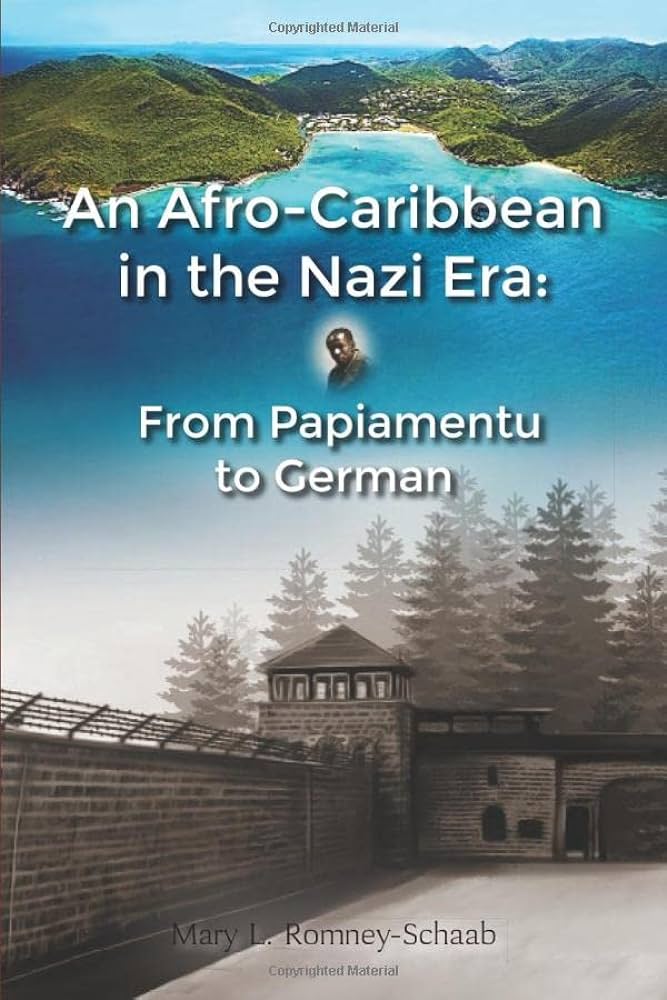Lionel Romney, a man from the Caribbean, was a sailor during World War II. Romney was on his way to Greece from Cardiff, Wales on a ship named the SS Makis. When the SS Makis was in the area between Sicily, Italy, and Tunisia, a disaster occurred. The SS Makis triggered a mine leading the ship to sink, but the crew survived.
The crew were rescued by the Italian Navy and became political prisoners. Lionel Romney was transferred between multiple internment camps in Italy for years before being sent by cattle car to Mauthausen Concentration Camp in June 1944.
Mary Romney-Schaab, Lionel Romney’s daughter, spoke about her father’s story and the importance of oral history on April 9 in a panel discussion at the Newtown Campus.
Romney-Schaab started off her presentation by emphasizing how important oral history is. She defined oral history as the “intersection of a person’s lived experience with historical events and recorded interviews about that intersection.”
She explained that oral history shows that history belongs to everyone and puts a human face on history. She described oral history as a personal narrative and talked about how Anne Frank’s Diary is not oral history, but a famous example of a personal narrative.
Romney-Schaab clarified that although the Nazis did put thousands of black people in concentration camps, “they did not specifically target black people.” She also went on to say that Hitler sent a group of people to the US, so they could get a feel for the segregation system to impose something similar against the Jewish people and other people they did not like.
She showed three images of concentration camps with each image showing an increasing number until she said there were over 10,000 concentration camps.
Romney-Schaab said that she asked her parents about their lives and that her mother was forthcoming, but her father was not. She noticed a gap in what he was saying and how evasive he was when she tried to ask.
Romney-Schaab’s mother eventually told her that her father was in a concentration camp. She said, “It felt like a gut punch.” Romney-Schaab was 15 when she learned about her father being in a concentration camp, and it took more than 20 years for her to get him to talk about his experiences.
It took over 40 years for Lionel Romney to talk about his experience at Mauthausen and Romney-Schaab showed several audio clips of him talking about his experience. In one of the clips, he talked about how scared he was and how frightening the night was because the SS would call a number out to take them. The people they took were usually not seen again.
Romney-Schaab first visited Mauthausen in 2006 to walk in her father’s shoes. She presented pictures of a nearby granite quarry that was used to torture the prisoners, and the stairs that led down to the quarry called the Stairway of Death.
SS soldiers would throw prisoners over the ledge into the quarry, which is 160 feet below the camp, to torture or kill them.
The prisoners who worked in the quarry had to go up the Stairway of Death with a 110-pound block of granite on their backs. The prisoners were already weak from the little to no food they received, so many would die. Some would fall back, leading to prisoners and blocks falling on each other.
Romney-Schaab mentioned that her father never answered the question, “But how did you survive?” However, she stated that she knew her father “survived because he was not assigned to the quarry, he was assigned to work as a lumberjack.”
She continued to say that he had a great amount of strength and had impressive language skills. Romney knew multiple languages, such as English, Dutch, German, Papiamentu, Spanish and Italian, giving him the nickname “The Translator,” while at Mauthausen. The SS kept people with language skills alive longer, so they could translate.
Romney-Schaab spoke about how going to Mauthausen brought her peace. She believes that her interviews with her father helped him heal a part of his trauma.
Romney-Schaab talked about Holocaust deniers, “Holocaust denial is at a more intensive level than it has been in a while because there is a whole environment of the denial of history not just in the US but in other countries.”
“It [denial of history] puts the whole world at risk,” she added.
She explained that refusing people their history is denying a huge portion of their humanity. She said, “History is knowledge and knowledge is power.” She used Western Europe as an example since those countries had so much power and had their history intact.
If you want to learn more about Lionel Romney’s story and Romney-Schaab’s personal journey, you can buy Romney-Schaab’s book, “An Afro-Caribbean in the Nazi Era: From Papiamentu to German,” on Amazon.


